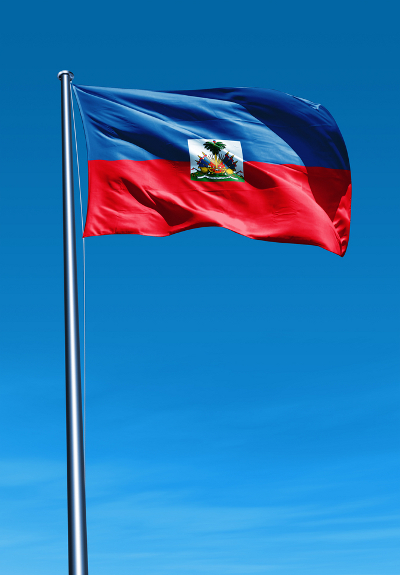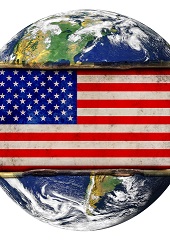5 Uplifting Things About Haiti
Rough waters and tough tides cannot trump Haiti’s spirit
May 24, 2014

You don’t have to search very far to find upsetting news about Haiti. Stories about cholera, deforestation, poverty, riots, political graft, food shortages and natural disasters are easy to find. And Haiti does indeed have plenty of intractable problems. But good news in Haiti is woefully under-reported and the country’s remarkable history is too easily forgotten.
With this thought in mind, let’s have a look at some uplifting history and news about a place the indigenous Taíno people called Ayiti (land of high mountains) long before Christopher Columbus — whose wrecked ship may have recently been located off the country’s coast — arrived in 1492.
1. Haitians defeated Napoleon (and became the world’s first independent black republic)
After receiving the western third of the island of Hispaniola from Spain in 1697, the French ramped up their importation of hundreds of thousands of African slaves to grow lucrative Caribbean crops.
The French colonial plantation owners treated their slaves with absolute brutality. Unsurprisingly, they began to fight back. Spurred by the likes of Dutty Boukman and François Mackandal — a one-armed slave who inspired others to overthrow their oppressors — slaves began launching a full-scale rebellion in the 1790s.
After much intrigue, European interference, bloodshed and fierce battles, Napoleon Bonaparte’s French forces — at the time an unstoppable army in Europe — were finally defeated at the Battle of Vertiéres at the end of 1803.
The French were driven from Haiti by an indefatigable army of slaves and soldiers led in large part by legendary leader Toussaint L’Ouverture. By 1804, decades before Liberia was established and over a century and a half before African decolonization, Haiti was suddenly the world’s first independent black republic.
2. Progress since the 2010 earthquake
Much has been written about Haiti’s slow recovery since the cataclysmic 2010 earthquake. What happened to the more than $9 billion in aid that was pledged? Where’s the progress?
While it’s true that there are still more than 140,000 people living in tents and the hopes of ‘building back better’ have not yet materialized, tremendous gains are still taking place.
Earthquake-resistant schools are springing up and damaged schools are being rebuilt. Upgrades have been made to Port-au-Prince’s Bernard Mevs Hospital and an influx of new equipment continues to arrive there. The hospital in Mirebalais is a shining beacon .
The organization I work for, Food For The Poor, has been able to construct more than 4,360 permanent homes for families in need and install more than 250 fresh water wells since 2010. While the cholera outbreak inadvertently brought by U.N. soldiers has been responsible for more than 8,000 deaths, clean water/sanitation initiatives have undoubtedly saved many more lives.
3. Beautiful beaches
Millions of tourists flock to other Caribbean countries every year to soak up the sun on beautiful beaches. Not so much in Haiti. That’s a shame, because Haiti has plenty to offer.
Abaka Bay (located on Ile a Vache, southwest of the mainland) was voted by CNN as one of the “world’s best beaches”. Incredible seascapes can also be found in the former pirate hotbed of Tortuga, as well as in Jacmel.
Haiti has over 1,000 miles of coastline to explore, much of which is pretty underdeveloped and pristine in comparison with the heavily manicured resorts of other Caribbean destinations.
Those willing to forgo a few amenities and get off the beaten path will have a great chance to enjoy the increasingly hard to find pleasures of a tranquil, empty stretch of beach on this planet.
4. Inspirational people
Haiti has no shortage of inspiring people who dedicate their lives to the betterment of others — through medical clinics, educational initiatives, agriculture, orphan care and various development projects.
Other world-class ambassadors include writer Edwidge Danticat, actor Jimmy Jean-Louis, Tourism Minister Stephanie Villedrouin and Haiti’s recently appointed Cardinal Chibly Langlois.
A gripping documentary about Haiti’s Jean Dominque, a dynamic, outspoken freedom-fighter/agronomist/journalist, was made in 2003.
Perhaps more than all the examples above, I’m inspired by the millions of Haitians who work hard to survive and raise children without regular access to things we so often take for granted, like electricity or clean water.
5. Resilience
The Haitian people are nothing if not resilient. They are survivors in a landscape that requires ingenuity and resourcefulness.
Natural disasters have not made things easier. Everyone remembers the devastating earthquake of 2010, but that’s just one of many disasters they’ve had to endure in recent times. There was Hurricane Jeanne, the storms of 2008 and too many other floods, droughts and mudslides to mention.
The famous, man-made disaster of deforestation is also rampant, but the good news is that many trees and gardens are being planted as well. Infrastructure is still poor, but roads are being built and more people are getting access to electricity. Slowly but surely, more kids are attending school.
Through it all, the Haitian people endure, rebuild and find a way to carry on with life. That is the spirit that will, one day, bring about the resurgence of the “Pearl of the Antilles.”
Takeaways
The spirit of the Haitians will, one day, bring about the resurgence of the “Pearl of the Antilles.”
Haiti has no shortage of inspiring people who dedicate their lives to the betterment of others
Good news in Haiti is woefully under-reported and the country’s remarkable history is too easily forgotten.
Haiti’s tranquil beaches appeals to tourists who forgo a few amenities and get off the beaten path

